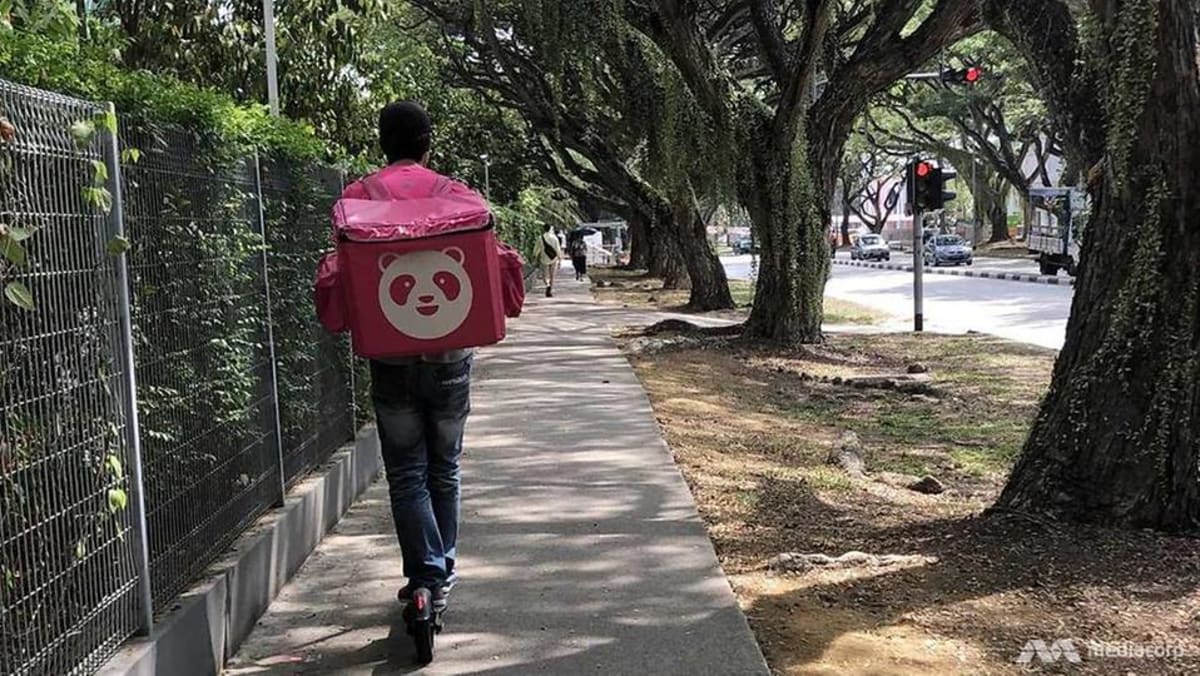
This comes after an Advisory Committee on Platform Workers said representation for platform workers should be enhanced.
Platform workers include delivery riders, private-hire car drivers and taxi drivers who use online platforms. There were around 88,000 platform workers in Singapore last year.
Recommendations from the tripartite workgroup take reference from the way unions represent employees in an industry or company, but adjustments were made based on differences between platform workers and employees.
During consultations, platform worker representatives said they need a legally empowered voice to negotiate with platform companies on issues such as improving earnings, welfare and work prospects.
At a dialogue with 120 platform workers, Dr Koh Poh Koon, adviser of the tripartite workgroup, said many workers want to have a voice for themselves and to “negotiate on a balanced relationship” with companies.
“With representative bodies, platform workers can better negotiate for (their) interests and platform operators will also benefit from clear processes and rules for negotiation, and more efficient dispute management,” said Dr Koh, who is also Senior Minister of State for Manpower.
Platform companies have internal processes for platform workers to provide feedback, submit enquiries and raise grievances, but there are challenges that limit workers from collectively voicing and negotiating, the workgroup said in a report.
When associations – such as the National Taxi Association, National Private Hire Vehicles Association and National Delivery Champions Association – negotiate with platform companies, there are obstacles to moving beyond an informal dialogue.
In a joint statement, representatives from the associations said platform workers can look forward to clear processes and rules that will make it easier to negotiate.
“As platform workers ourselves, we understand the unique struggles that platform workers face in our work,” they said.
NTUC secretary-general Ng Chee Meng said the acceptance of the recommendations is a significant milestone.
“We seek to work closely with our partners and platform workers, to champion them in the areas of better wages, welfare and work prospects,” he said.
REPRESENTATION FOR PLATFORM WORKERS
A platform worker representative body will be able to obtain a mandate through direct recognition from the platform company or through a secret ballot after it has been registered with the government.
With the exception of those who are very new or inactive, all platform workers will be able to vote in the event of a secret ballot.
If an organisation informs a platform company that it intends to represent platform workers on Apr 1, those who signed up with the platform on or after Jan 1 would be considered “very new” and will not be eligible to vote.
“Inactive” workers who have not taken any jobs between Jan 1 and Apr 1 will also not be eligible.
In this way, the focus is on platform workers who have a greater stake in negotiated outcomes, the report said.
Voting will be conducted by the Ministry of Manpower (MOM) and will be done electronically. MOM will determine the duration and date of the ballot, and disseminate information on how to access the voting system.
The representative body must gain majority support from those who vote, and at least 20 per cent of eligible workers must cast their votes for the poll to be valid.
That compares with an employee union needing majority support, or more than 50 per cent of all employees it seeks to represent, in order to obtain a mandate.

